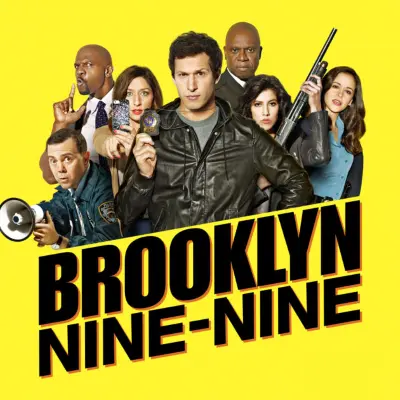Brooklyn Nine-Nine deserves credit for dealing with the controversy over policing in its final season
-

"It’s to Brooklyn Nine-Nine’s credit that in its final season, the series let its cop characters exist in the real world, reflect upon their roles in a racist system, and make significant changes in their lives as a consequence," says Tara Ariano. "A lesser show might have tried to confine its heavier content to the season premiere — let the audience see that the members of the squad weren’t in denial — and then returned to business as usual, with the light gags and the comical perps. That’s not what happened here. Rosa Diaz (Stephanie Beatriz) resigned from the department, changing careers to become a PI serving clients seeking justice for victims of police abuse. Her former colleagues’ anxieties about complicity and personal responsibility ran through the entire season, with Jake (Andy Samberg) deciding the best course of action was to facilitate an escape by reformed Pontiac Bandit Doug Judy (Craig Robinson) rather than delivering him to prison to serve time on a BS charge. Jake later realized his single-minded zeal had led him to abuse his power in another case where his instincts were completely wrong; while the next episode, a Knives Out riff involving Boyle (Joe Lo Truglio) and his many beloved cousins, was hilariously bonkers, Jake’s suspension still hung over the proceedings. The show made a true villain of patrolmens’ union head Frank O’Sullivan (John C. McGinley), an unethical jackass determined to resist positive change in the department if it meant inconveniencing any cop even a little. But when I also called the series a wish-fulfillment fantasy, it’s because of stuff like...Holt (Andre Braugher) and Amy (Melissa Fumero) getting gigantic promotions to oversee reform in the department, just a few months after deciding this was an issue they needed to work on...Ultimately, though, we didn’t watch Brooklyn Nine-Nine to see fictional characters get things right where their real-life counterparts got it wrong — this isn’t The Newsroom."
TOPICS: Brooklyn Nine-Nine, NBC
More Brooklyn Nine-Nine on Primetimer:
